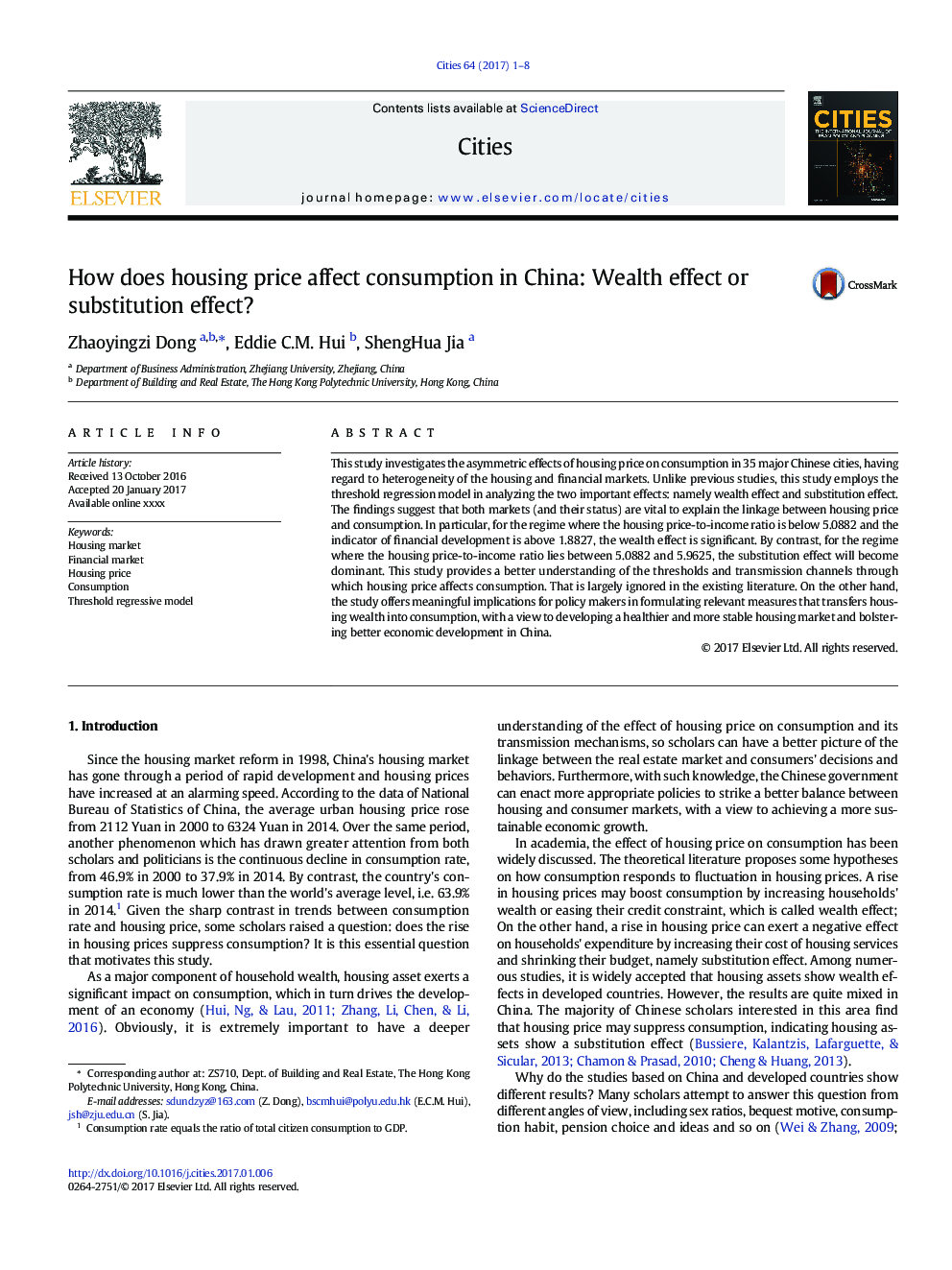| Article ID | Journal | Published Year | Pages | File Type |
|---|---|---|---|---|
| 5108132 | Cities | 2017 | 8 Pages |
Abstract
This study investigates the asymmetric effects of housing price on consumption in 35 major Chinese cities, having regard to heterogeneity of the housing and financial markets. Unlike previous studies, this study employs the threshold regression model in analyzing the two important effects: namely wealth effect and substitution effect. The findings suggest that both markets (and their status) are vital to explain the linkage between housing price and consumption. In particular, for the regime where the housing price-to-income ratio is below 5.0882 and the indicator of financial development is above 1.8827, the wealth effect is significant. By contrast, for the regime where the housing price-to-income ratio lies between 5.0882 and 5.9625, the substitution effect will become dominant. This study provides a better understanding of the thresholds and transmission channels through which housing price affects consumption. That is largely ignored in the existing literature. On the other hand, the study offers meaningful implications for policy makers in formulating relevant measures that transfers housing wealth into consumption, with a view to developing a healthier and more stable housing market and bolstering better economic development in China.
Related Topics
Social Sciences and Humanities
Business, Management and Accounting
Tourism, Leisure and Hospitality Management
Authors
Zhaoyingzi Dong, Eddie C.M. Hui, ShengHua Jia,
